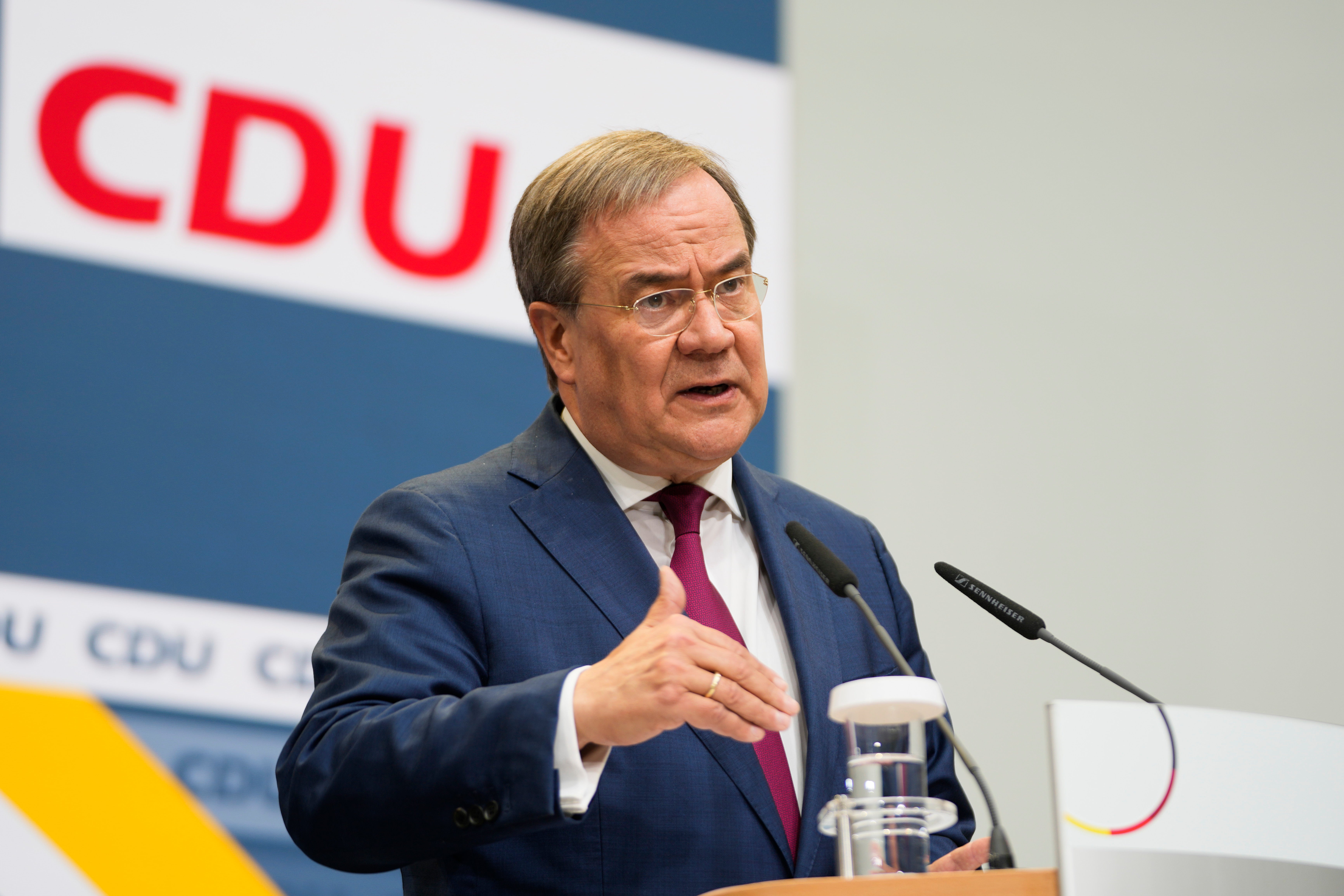Germany: Merkel's party to choose new leader by late January
Outgoing German Chancellor Angela Merkel’s center-right party is turning to a ballot of its entire membership to choose a new leader after crashing to defeat and its worst-ever national election result in September

Outgoing German Chancellor Angela Merkel s center-right party is turning to a ballot of its entire membership to choose a new leader after crashing to defeat and its worst-ever national election result in September. It expects to have a new leader by late January.
It will be the first time that the Christian Democratic Union has had its roughly 400,000-strong membership vote on who leads the party. Outgoing leader Armin Laschet said Tuesday that it is “a good way to achieve a new beginning for the CDU.”
Laschet, who was elected to lead the CDU only in January, is stepping aside after a much-criticized election campaign marred by infighting.
The two-party Union bloc, in which the CDU is by far the bigger party, finished behind the center-left Social Democrats with only 24.1% of the vote. The Social Democrats are negotiating with two smaller parties to form a coalition government, which they hope will take office in early December — sending the Union into opposition.
The CDU leadership contest will be the third since Merkel stepped down as party chairwoman in late 2018 and announced she wouldn't seek a fifth term as chancellor.
Both Laschet and predecessor Annegret Kramp-Karrenbauer were narrowly elected by party congresses after three-way battles for the leadership. This time, local party bosses made it clear that they want the wider membership to have a say.
Candidates can be nominated from Nov. 6-17 and a first round of voting, by online and mail-in ballot, will be held in early December. If a runoff ballot is required, that would be completed in mid-January. A party congress Jan. 21-22 will officially sign off on the result.
No one has yet declared their candidacy to succeed the centrist Laschet.
But conservative Friedrich Merz, who finished second in the last two contests, appears keen to run again — as does Norbert Roettgen, who finished third in January. Other potential candidates are outgoing Health Minister Jens Spahn prominent lawmaker Carsten Linnemann and the head of the Union's parliamentary group, Ralph Brinkhaus.
Three of the CDU's six current state governors will be defending their jobs in state elections next year, including one in May in North Rhine-Westphalia, Germany s most populous state. Laschet ran North Rhine-Westphalia until he gave up the job to younger successor Hendrik Wuest last week.
___
Follow AP’s coverage of Germany’s transition to a new government at https://apnews.com/hub/germany-election
Bookmark popover
Removed from bookmarks